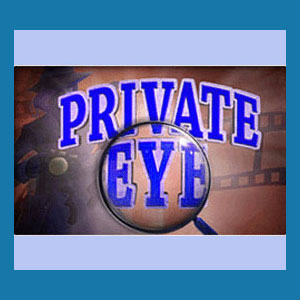
Is private investigation illegal? This is a crucial question to answer if you are currently working in the detective professions. No one wants to break the law and be arrested and charged with criminal acts in the course of simply performing their job.
Why would professional investigation be considered illegal? What are the penalties for being caught? If you are working as a PI, you best know these answers before taking any case assignment that may put your freedom and very life in jeopardy.
This dialog focuses on the legality of detective services.
Where Is Private Investigation Illegal?
Professional investigation is not illegal in most countries in the world. The notable exception is South Korea, where working as a professional detective is illegal and strictly forbidden. However, how much tolerance is shown to the detective trade varies greatly by location:
Many countries have no provisions in the law covering professional investigation services. The profession is not outlawed, nor regulated. In essence, it is largely ignored under the legal and penal codes. This can be a great thing sometimes, since it gives investigators much freedom in what they can and can not do. However, the profession also receives no special protection under the law, making PIs targets for criminals and corrupt police and government officials.
In most developed countries, professional investigators are strictly regulated by the government. This regulation can take many forms, as detailed in the section below.
Private Investigation Legality Regulations
In regulated areas, private eyes may have to abide by any or all of the following conditions imposed by the government:
Many private eyes need to be licensed by a particular governmental agency. The qualifications for this licensure range greatly and may include specific training or educational credentials.
Investigators might have to maintain special business insurance products, often called investigation bonds.
Investigators are frequently highly regulated in what they can and can not do in the course of their jobs. Developed countries will have specific legal restrictions and limitations on the types of services that detectives can provide.
Note that regulations, licensing requirements and even legality of the profession might vary from region to region within the same country. The perfect example is the United States, where each of the 50 states has its own unique regulation processes and some cities do, as well…
Are Private Investigation Services Illegal?
Even where investigation is legal, accepted and even protected by law, the activities that detectives can perform are most often limited. All professional investigators must have a thorough knowledge and understanding of the law that regulates their vocation in every area where they work. Failure to know the regulations and limitations on the industry can result in big trouble with the law.
Detectives who are caught breaching accepted legal regulations can be arrested and charged under the penal code. They might have their license removed, be fined monetarily and even jailed for what can be construed as criminal action or intent.
Furthermore, professional investigators can also find themselves the subject of civil litigation and may not receive any protection under the law if they fail to abide by all regulatory laws in place in a given jurisdiction.


